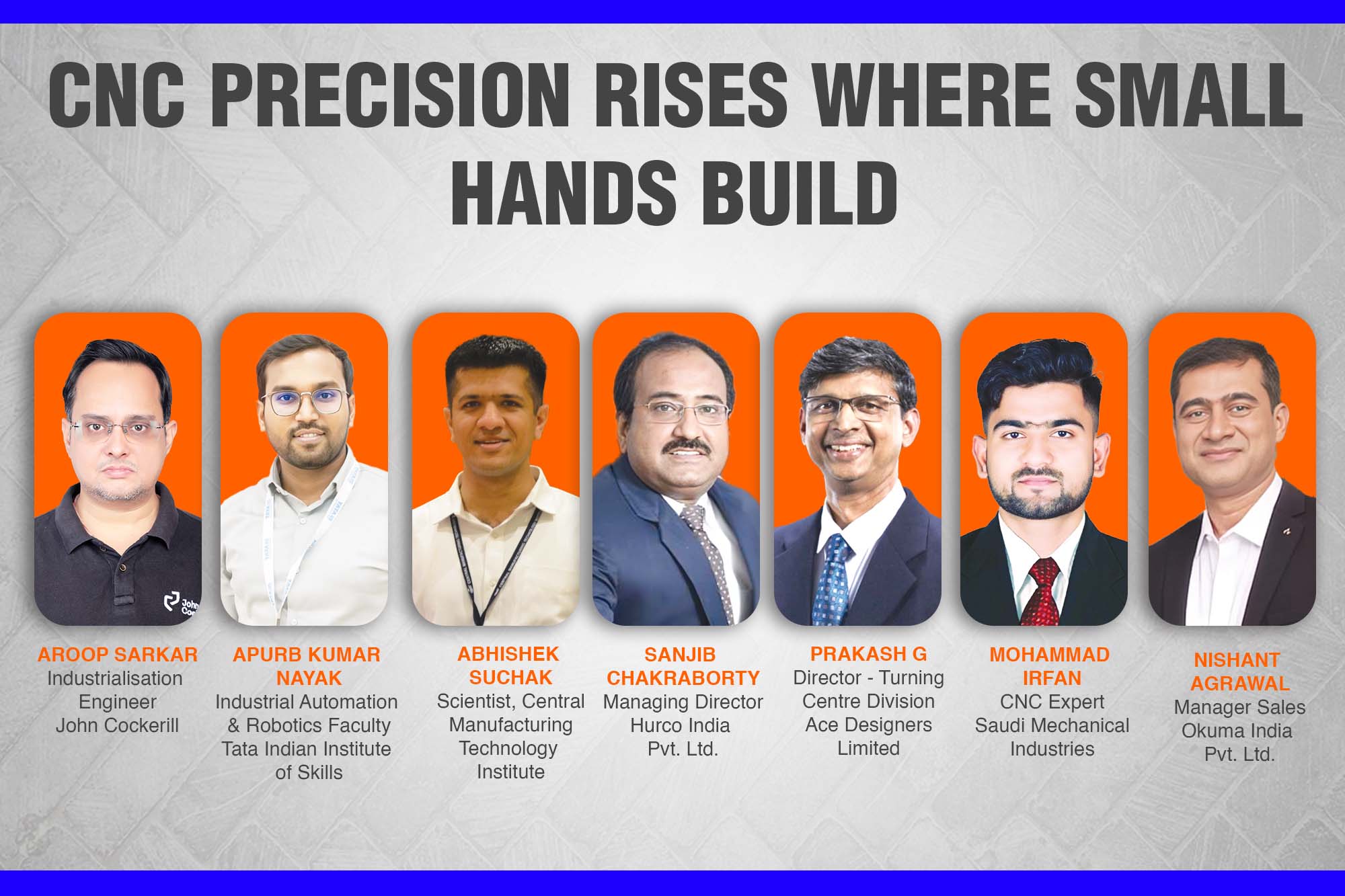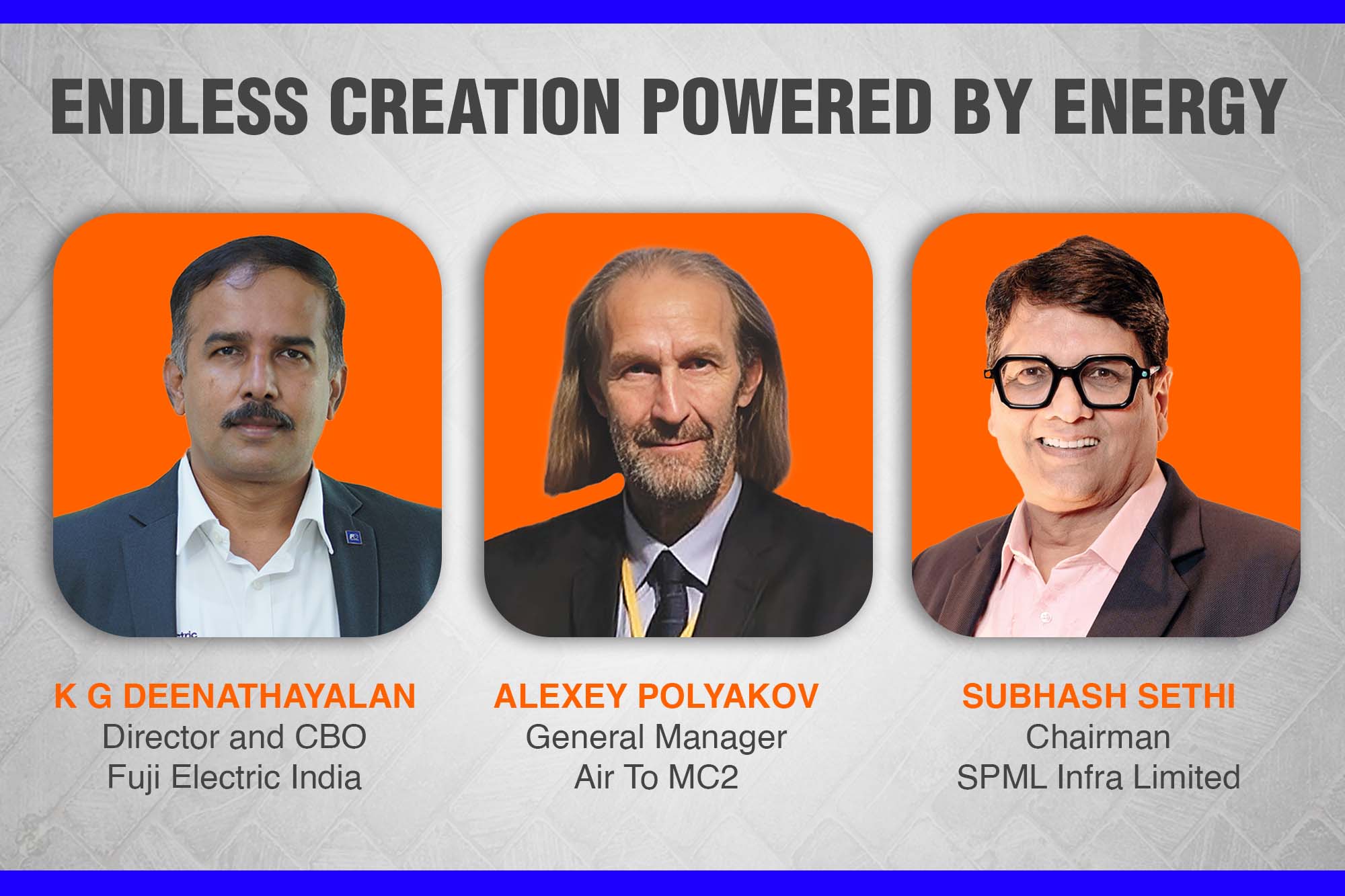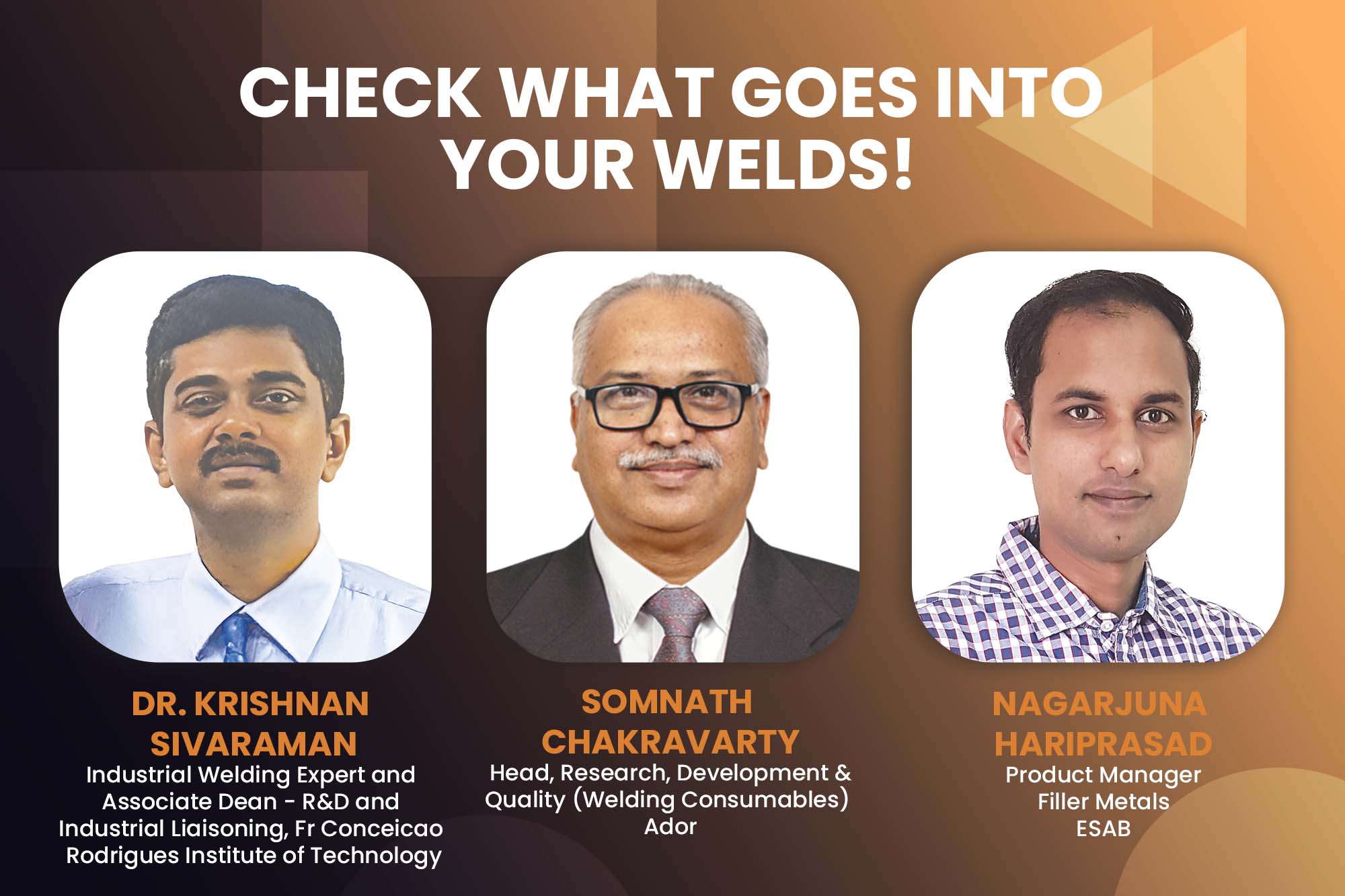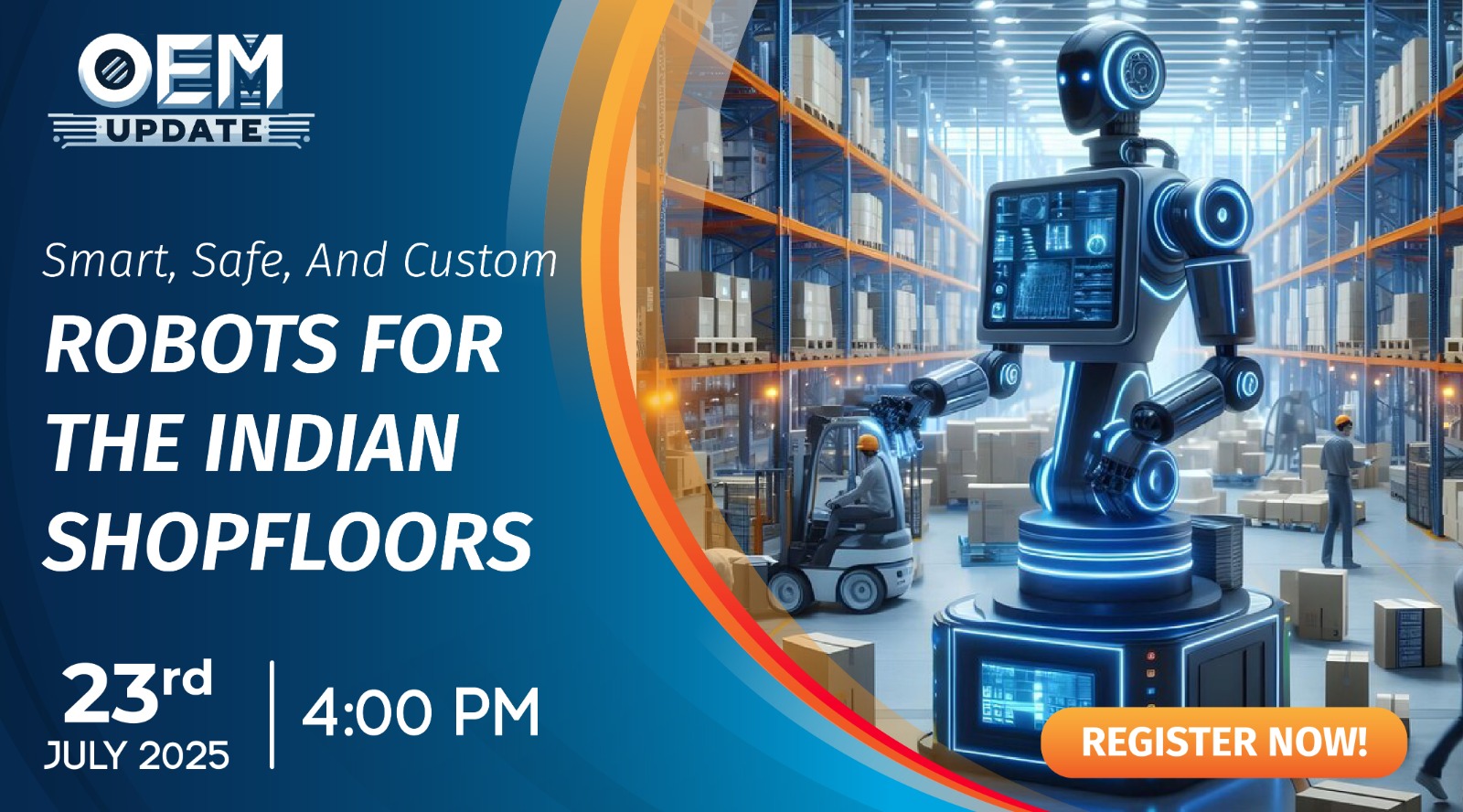Reshaping the future of die and mould technology
By OEM Update Editorial December 29, 2023 7:03 pm IST
Integrating cutting-edge advancements like 3D printing, AI, and innovative materials, the die and mould industry is undergoing a changing phase. Focused on precision, efficiency, and rapid evolution, these technological shifts redefine manufacturing landscapes, catering to global demands.
The value of digital solutions is leading tooling companies to embrace digital technologies to enhance business operations and efficiency increasingly. Dies and moulds are primarily metal tools utilised in polymer and metal injection moulding, stamping, or extruding processes. CAD and CAM serve as the foundational elements in die and mould technology. The process leads to crucial mould design, starting with an engineering CAD model as the base. Technological advances like 3D printing and injection moulding have reduced production duration and errors in manufacturing.
Keeping pace with the latest technologies is crucial to address increasing market requirements and maintain competitiveness. Additionally, as Indian companies cater to a global customer base with stringent demands for precision and efficiency, adopting cutting-edge technologies becomes essential to meet these requirements. Material options, technological progress, and changing market need to drive the die and mould industry. Its direction centres on precision, efficiency, and the flexibility of materials and methodologies.
Injection moulding and automotive die industry
The interplay between injection moulding and the die-mould industry is evident as demand increases. Additive manufacturing is gaining traction, particularly in creating intricate geometries for conformal cooling in moulds and dies. This method, also known as 3D printing, diverges from traditional manufacturing by building parts layer by layer. Shatyabrata Das from IAC-International Automotive India highlights its precision in designing and printing cooling channels, improving cooling efficiency and reducing cycle times for moulded parts.
In the automotive die mould industry, Akshay Kalyanpur of Sridevi Tool Engineers notes how customer demands drive the adoption of modern technologies. Integrating 3D-printed conformal cooled inserts is crucial for faster cycle times. Strategies involve creating duplicate moulds or adopting multi-cavity moulds for higher production capacity. To boost overall throughput, there is a focus on reducing cycle times. Additionally, replacing certain metal parts with lighter plastics aligns with the trend of lightning car components, impacting the die and mould industry significantly.
In injection moulding, 3D printing reduces defects, enhances surface finishes, and improves cooling efficiency, particularly in conformal cooling. This technology is seen as the industry’s future, with potential discussions centered around printing entire cars. Akshay highlights the substantial impact of 3D printing on prototyping and small production businesses. This technology enables rapid and cost-effective production of prototypes, offering intricate designs and catering to on-demand or small-batch production with remarkable flexibility, surpassing the time-consuming processes of traditional prototyping like CNC machining.
AI integration
The key die and mould manufacturing technologies include design, programming, simulation software, CNC machining, and injection moulding. These advancements consistently propel improvements in quality and efficiency throughout the development process.
Incorporating AI into this industry is a catalytic, potentially reshaping operation. According to Akshay, given the industry’s reliance on specialised knowledge due to the unique challenges posed by each mould, AI holds promise in analysing patterns derived from data collected during manufacturing and problem-solving. This shift could transition to a methodical AI-driven approach into multiple phases of manufacturing, from design through to production.
Advancement in CAD and CAM software
In today’s industry, the CAD-to-CAM workflow is integral to manufacturing processes. Recent advancements in CAM software have introduced die and mould production changes, significantly expediting what was once a time-consuming design process. CAM’s strength lies in its ability to accelerate production by closely monitoring cutting tool performance for precise control and efficient movement. These optimisations have cut down manufacturing processes, ensuring a smooth and uninterrupted workflow. Core software additions enhance mould manufacturing efficiency each year, shortening the cycle from CAD design to factory floor production while improving overall accuracy.
CAD/CAM software tools have undergone significant advancements, surpassing traditional capabilities. Improved interfaces offer easier navigation and access to advanced features. Moreover, enhanced simulation capabilities provide a comprehensive preview of machining processes, minimising errors before production. Vineet Seth, Managing Director – South Asia & Middle East, Mastercam APAC, highlights the integration of AI-driven algorithms and machine learning in CNC programming, bolstering automation for quicker toolpath generation and optimisation based on historical data, thus enhancing precision and productivity.
Shatyabrata notes the importance of advanced 5X machines in die manufacturing, emphasising their reliance on advanced and modular CAM support. These codes are essential for the comprehension of computer-controlled machinery.
Emerging trends
The global tool room industry reached USD 80 billion in 2021, with India’s market estimated at around INR 23,600 crore. Devaraya Manjunath Sheregar, President of TAGMA India, remains optimistic about the growth trajectory of the Indian tooling industry, anticipating sustained expansion shortly. The industry is witnessing emerging trends, with Indian tooling companies expanding beyond the automotive sector to diversify their business, aligning with global patterns.
Akshay emphasises that material selection and technological innovations are crucial drivers of precision and efficiency in the die and mould industry. Moreover, technological advancements, including AI and additive manufacturing, shape the industry’s future.
Material selection is pivotal for production success in die and mould manufacturing, considering crucial factors like hardness, wear resistance, and thermal conductivity. Materials like H13 tool steels are preferred for their capability to withstand high temperatures in injection moulds.
The die and mould industry, known for its historical innovation in precision manufacturing, is expected to lead advancements in discrete high-precision manufacturing and the rapid production of sheet metal and plastic components. Previously, manufacturing car parts with moulds used to take several months due to overseas supplier transit times, but local production in India has significantly expedited this process.
The industry’s future is set for transformation, driven by technological advancements and evolving market demands. Innovations like additive manufacturing, AI-based design, and novel materials reshape manufacturing processes. Market preferences are shifting toward customisation, sustainability, and cost efficiency. Integration of robots alongside dies and moulds is pivotal, particularly in plastic component production. Devaraya notes significant improvements in the ease of doing business in recent years. Initiatives such as ‘Make in India’ and ‘Atmanirbhar Bharat,’ along with various Production Linked Incentive (PLI) schemes across industries, foster favourable conditions for domestic players.
In conclusion, injection moulding is a crucial process for shaping various plastic components in vehicles, predominantly executed by vertical and horizontal injection moulding machines. These machines are pivotal in the automotive industry, producing numerous plastic parts within vehicles. The injection moulding process involves several sequential steps, from CAD modelling to integration into the vehicle after value addition and inspection.
While Indian die and mould manufacturers currently do not require ISO 14001 certification, there’s a growing international trend, led by OEMs and Injection Moulders, to collaborate with EMS-certified die and mould makers. This movement is anticipated to gain traction in India soon. Akshay emphasises that EMS offers a structured approach for organisations to enhance their environmental performance, ultimately driving efficiency improvements by minimising waste and expenses. Expanding tooling businesses involves substantial financial investment, particularly in machinery and land acquisition, necessitating a more conducive business environment to attract additional players.
The automotive and motorcycle industries’ shortened development cycles impact lead times for die and mould manufacturers, prompting a continuous pursuit of methods to expedite tool production. As digitisation becomes pervasive and embedded electronics gain prevalence, the future trajectory points toward a significant role for AI in these advancements.
Devaraya Manjunath Sheregar, President, TAGMA India
“Localising tooling production holds economic promise, fostering job creation, nurturing indigenous machine makers, fostering robust R&D, and optimising supply chains.”
Shatyabrata Das, SR General Manager, IAC-International Automotive India Pvt. Ltd.
“Robots efficiently transport the moulded parts to the final assembly line, becoming indispensable in moulding.”
Vineet Seth, Managing Director – South Asia & Middle East, Mastercam APAC.
“Die and mould industry is expected to lead future innovations and practices in discreet high-precision manufacturing and high-speed production of sheet metal and plastic components.”
Akshay Kalyanpur, Director, Sridevi Tool Engineers Pvt. Ltd.
“Alongside technological advancements, one more important trend that I must highlight is localisation. Each year, the number of tools localised for most OEMs continues to rise.”
Cookie Consent
We use cookies to personalize your experience. By continuing to visit this website you agree to our Terms & Conditions, Privacy Policy and Cookie Policy.
















